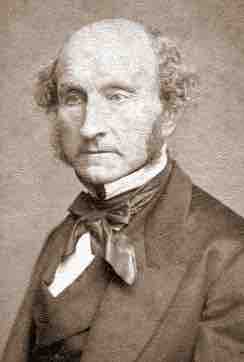Liberty is the ability of individuals to have agency, or control over their own lives. There are different conceptions of liberty, which articulate the relationship of individuals to society in varying ways, including some which relate to life under a "social contract" or to existence in a "state of nature," and some which see the active exercise of freedom and rights as essential to liberty.
Philosophical Foundations
The concept of liberty plays a very important role in social contract theory, particularly in its discussion of sovereignty and natural rights. The thinkers of the Enlightenment reasoned that law governed both heavenly and human affairs, and that law gave the king his power, rather than the king's power giving force to law. The conception of law as a relationship between individuals, rather than families, came to the fore, and with it the increasing focus on individual liberty as a fundamental reality, given by "Nature and Nature's God," which, in an ideal state, would be as expansive as possible. Thus, Enlightenment thinkers' conception of liberty was that a free individual is most free within the context of a state which provides stability through its laws.
Within the context of social liberty, the British philosopher John Stuart Mill, in his work On Liberty, sought to define the "nature and limits of the power which can be legitimately exercised by society over the individual." As such, he describes an inherent and continuous antagonism between liberty and authority. The prevailing question thus becomes "how to make the fitting adjustment between individual independence and social control. "

John Stuart Mill
John Stuart Mill, author of On Liberty
Positive and Negative Liberty
On Liberty was the first work to recognize the difference between liberty as the freedom to act and liberty as the absence of coercion.In his book, Two Concepts of Liberty, the British social and political theorist Isaiah Berlin formally framed the differences between these two perspectives as the distinction between two opposite concepts of liberty: positive liberty and negative liberty. The latter designates a negative condition in which an individual is protected from tyranny and the arbitrary exercise of authority, while the former refers to having the means or opportunity, rather than the lack of restraint, to do things.
Liberty in the United States
The concept of liberty has long been a central aspect of the political self-definition in the United States. The founders of the United States were heavily influenced by the writings of John Locke, who had declared in Two Treatises of Government that under natural law, all people have the right to life, liberty, and estate. In addition, under the social contract, the people could instigate a revolution against the government when it acted against the interests of citizens, and replace it with one that would serve the interests of citizens.
In a more modern context, the U.S. Supreme Court decision Griswold v. Connecticut established that liberties relating to personal relationships, such as marriage, have a unique primacy of place in the hierarchy of freedoms.